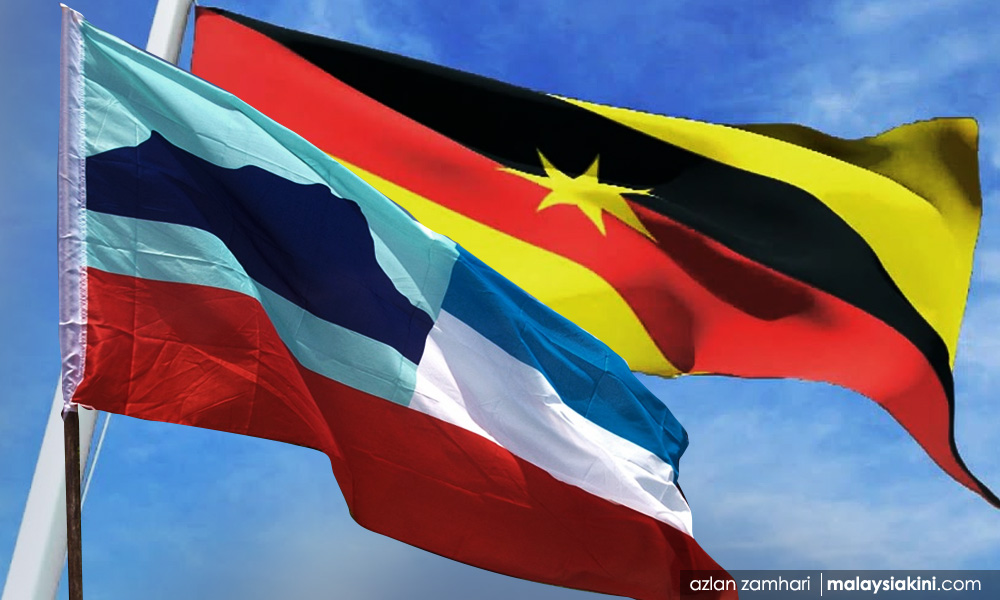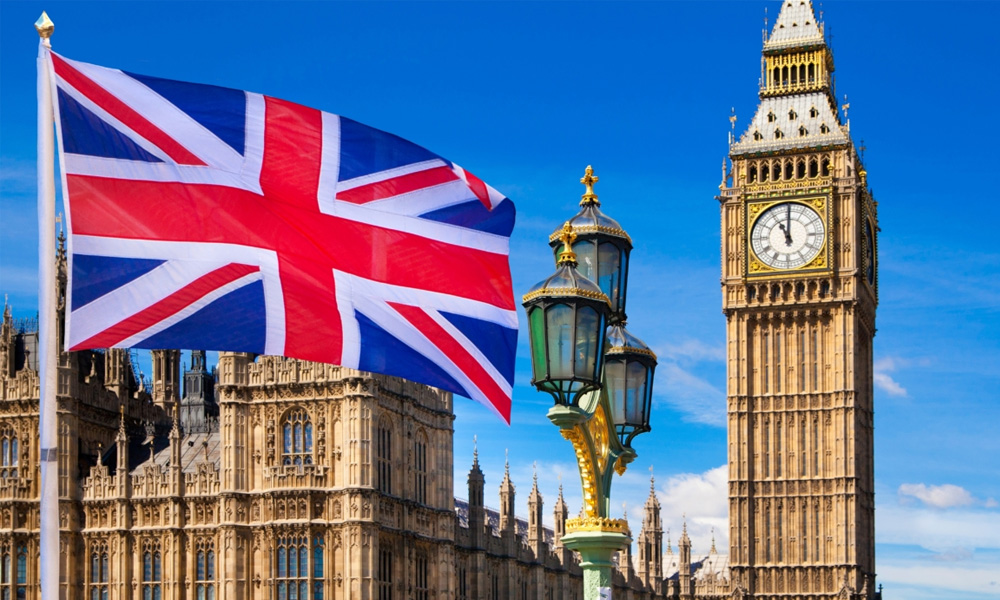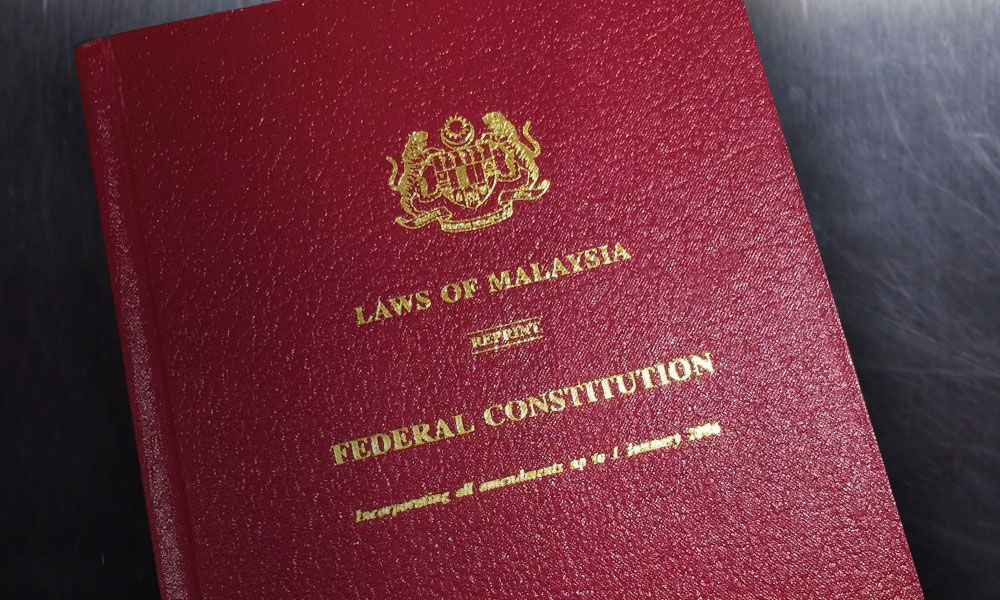Johor Regent Tunku Ismail Sultan Ibrahim’s call for Johor to be treated as an equal partner of the federation is a wake-up call for a national agenda of decentralisation.
This agenda should be grounded on asymmetric federalism - that Sabah and Sarawak must have more powers than other states - and facilitated through a multilateral negotiation between the federal and all state governments.
The assertion to make Johor on par with Sabah and Sarawak ironically exposes the flaw of the “equal partnership” narrative that has been perfunctorily accepted by West Malaysian politicians in need of East Malaysian kingmakers.
The equal partnership narrative
Can a state be the federation’s partner? The answer depends on what partnership means.
If partnership refers to an inter-governmental relationship, then the answer is, of course, yes. State governments are partners to, not subordinates of the federal government. States are not Malaysia’s belongings but rather, Malaysia belongs to all states.
However, when Sabah, Sarawak, and now Johor, talk about being equal partners to the federation, they mean that the federal government is representing all other states excluding them.

When Sabah and Sarawak talk about equal partnership, the federation is reduced to Malaya. When Johor now talks about an equal partnership, the federation is further reduced to Malaya sans Johor.
If this makes sense, why should not all 10 other states make the same claim that they are also partners?
Then, what is left of the federation? The three federal territories? Does Malaysia become a partnership of 13 states and the federal government of Kuala Lumpur, Labuan, and Putrajaya?
The fallacy is blatantly obvious.
Many East Malaysians dislike Johor being lifted to be on par with Sabah and Sarawak but they would like to defend the idea of Sabah and Sarawak being equal partners to the federation.
This idea has gained some form of political correctness. It has been not just perfunctorily echoed by West Malaysian politicians but also sincerely embraced by many West Malaysian liberals sympathetic to the marginalisation - some locals would bluntly call it “internal colonisation” - of East Malaysia.
The wrong analogy - the UK
The “equal partnership” narrative is sometimes rooted in the analogy of the United Kingdom.
Going by this analogy, Sabah and Sarawak are akin to Scotland and Wales while the federal government is analogous to the UK national government which also represents England.
(The UK officially recognises itself as a union of “four countries”. Northern Ireland is irrelevant in this analogy as Malaysia has no state or territory wanting unification with another country.)
This analogy is obviously appealing and inspiring to Sabahans and Sarawakians for three reasons.
First, both Scotland and Wales have both distinct cultural identities and separatist movements. Just as some Scottish nationalists dismissed the 1707 Treaty of Union between England and Scotland as “bullying, bribery and betrayal”, some Borneo nationalists claim that the Malaysia Agreement 1963 (MA63) is now null and void.
Second, to dissuade Scottish and Welsh separatism, the UK national government has embarked on devolution of powers, established regional legislatures, and even held a referendum on Scottish independence in 2014.
Third, championing Scottish and Welsh nationalism, nationalist parties have risen over time.
The Scottish National Party (SNP) now holds a majority in the Scottish Parliament and won 80 percent of the Scottish seats in the 2019 UK House of Commons election.
Unfortunately, this analogy does not fit Malaysia because Malaya is not England.
England has neither its own Parliament nor elected regional governments (except Greater London) that are on par with Scotland, Wales, and Northern Ireland. So, the UK government doubles up as the government of England.

This is where Malaysia differs. While the formation of Malaysia was negotiated by the Federation of Malaya, Sabah, Sarawak, and Singapore, once Malaysia was formed, the Federation of Malaya was simultaneously dissolved and the 11 Malayan states reemerged as quasi-sovereign entities in the larger federation.
In other words, Sabah, Sarawak, and now Johor, cannot dismiss other states as being represented or owned by the federal government without their own voices.
Sabahans and Sarawakians’ fear that they will not get a fair deal if they are on par with all 11 Malaysian states is understandable. But denying the other states their own rights as separate entities from the federal government is constitutionally ungrounded and politically unviable.
To put it bluntly, would the nine Malay rulers agree to their states being reduced to federal “belongings” or represented by only the federal government? Given the royal disagreement, do Sabah and Sarawak realistically expect the decentralisation they desire to go far?
Asymmetric federalism and the Canadian analogy
The Borneans’ desire for greater power and the respect of Malayan states as quasi-sovereign entities can be easily reconciled with the recognition of a simple concept: asymmetric federalism.
Asymmetric means not all states are equal. Instead, they are broken down into different tiers, with different degrees of power.
Here, we can look at Canada as an analogy, which is not perfectly fitting but more useful than the UK.
Politically and culturally, Canada consists of the French-speaking Quebec, which wanted independence but failed in its referendums, and the remaining English-speaking provinces and territories. Quebec is a distinct society within Canada.
Constitutionally, Canada consists of 10 provinces and three territories. The Canadian federal government and 10 provincial governments derive their powers from the Constitution of Canada while the territorial governments have their power delegated by the federal Parliament.
To dissuade Quebec separatism, successive federal governments attempted decentralisation with negotiations with all provincial governments.
An agreement, the Charlottetown Accord, was reached by the federal and all 10 provincial governments in 1992.
Despite its unfortunate defeat in a national referendum, the negotiation built some inter-party consensus towards decentralisation and diversity. Quebec nationalism has also gradually waned.
Asymmetric federalism in Malaysia would mean three tiers of state-level entities: on top with the most power, Sabah and Sarawak, by virtue of MA63; next, the 11 peninsula states; finally, the three federal territories.
(Contrary to the popular myth, Sabah and Sarawak were referred to as “the Borneo states” or simply “the states”, never “regions”, in the original Article 2 of the Federal Constitution, MA63, and the Inter-Governmental Committee report [IGC])

Whether Johor should be given privileged treatment above the eight other Malay states, the discussion can first start at the next Conference of Rulers meeting.
This would provide the basis for a national agenda of decentralisation: all states should get more powers - legislative, administrative, and fiscal - than they do now but Sabah and Sarawak must get more than what the remaining 11 states would get.
Meanwhile, the three Federal Territories should get elected governments to operate under federal watch.
Hence, the asymmetric federalism narrative can serve three goals: greater autonomy and the guarantee of their most privileged status for Sabah and Sarawak; decentralisation for the 11 peninsula states; and the preservation of the Federation of Malaysia.
Decentralisation - national or denationalising?
To preserve the Federation of Malaysia, we must recognise two facts.
First, the over-centralisation of power in federal hands has worsened instead of mitigating regional imbalance, building up frustration and discontent that may fuel separatism.
Second, if decentralisation is dished out in multiple bilateral negotiations - for example, education for Sarawak, and perhaps next, tax retention for Johor and Penang - instead of a multilateral negotiation of all states, the outcome can be disastrous.
When decentralisation becomes a tool of intergovernmental patronage, this may weaken federal capacity and invite political revolt when such patronages are withdrawn by future federal governments.
What we need is a well-structured deliberation on decentralisation via constitutional amendments, new laws, and new policies.
Like how Malaya, the UK, Sabah, and Sarawak formed the IGC in 1962 to negotiate terms that were later entered as the MA63, we may need an IGC 2.0 consisting of the federal and all 13 state governments.
This IGC 2.0 should revisit Parts VI and XIIA and the Ninth Schedule of the Federal Constitution governing federal-state relations.
We do not need to rush this as inter-party consensus would take time to build.
The IGC 2.0 can come after the 16th general election to allow parties to formulate their positions for voters and potential government partners to consider.
Without a national agenda, decentralisation can be denationalising, gradually undoing Malaysia. We must not fool ourselves into thinking that we have a choice. - Mkini
WONG CHIN HUAT is a political scientist at Sunway University and a member of Project Stability and Accountability for Malaysia (Projek Sama). He believes that politicians can be men’s and women’s best friends given the right House training.
The views expressed here are those of the author/contributor and do not necessarily represent the views of MMKtT.




No comments:
Post a Comment
Note: Only a member of this blog may post a comment.